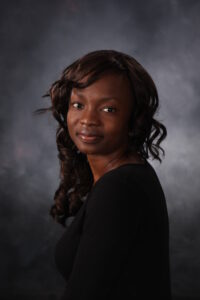Meet Our New Wadsworth International Fellows: Elisabeth Kago Nébié
 The Wadsworth International Fellowship provides the opportunity for students in countries where anthropological education is underrepresented to receive world-class training at a university abroad. In the first of a series of posts introducing this year’s new cohort of fellows, we meet Elisabeth Kago Nébié of Burkina Faso, a cultural anthropologist working on the social aspects of scarcity in natural resource management.
The Wadsworth International Fellowship provides the opportunity for students in countries where anthropological education is underrepresented to receive world-class training at a university abroad. In the first of a series of posts introducing this year’s new cohort of fellows, we meet Elisabeth Kago Nébié of Burkina Faso, a cultural anthropologist working on the social aspects of scarcity in natural resource management.
I was born on August 2, 1988 in Ouagadougou, Burkina Faso. I am interested by the cultural politics of natural resource management in Burkina Faso. In 2010, I received a BA in International Public Relations from Université Libre du Burkina where my ‘mémoire’ examined how Burkina Faso tackles climate change as a sociocultural issue in the international arena.
In 2011, I received a Fulbright Scholarship for a Master’s degree in International Development and Social Change at Clark University in Worcester, Massachussets where I graduated on May 19, 2013. My stay at Clark increased my interest in the cultural dimensions of natural resource management, especially water. Water is a resource that connects human beings, but how does water scarcity impact self-identification and relationships among people?
I have been accepted to the doctoral program in anthropology at the University of North Carolina at Chapel Hill (UNC-CH) in order to explore this question. Through its pan-campus theme “Water in Our World”, UNC-CH makes major breakthroughs in water research and establishes lasting initiatives. I am particularly interested in working with Dr. Colin Thor West, whose work has concentrated on household adaptations to climate change in Burkina Faso. I would like to build on his research and add ‘joking relationships’, power and gender relations to the debate.
Burkina Faso lacks well-trained anthropologists and, more importantly, female professors and researchers. The few anthropology courses use texts written by ‘outsiders’ about customs and practices in Burkina Faso. It is time for contemporary ethnographies by burkinabe anthropologists to be part of the curriculum. I am determined to motivate the creation of an anthropology department at the University of Ouagadougou and be part of a research unit to help write contemporary ethnographies of Burkinabe.
I am very honored to be a Wadsworth International Fellow and look forward to contributing to anthropological debates and research.
Congratulations, Elisabeth!